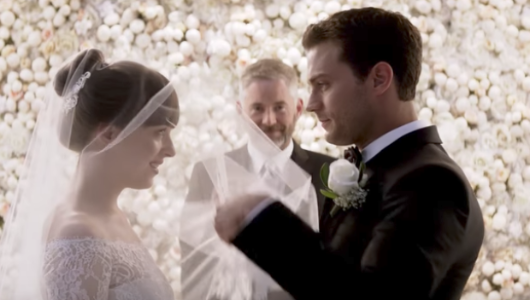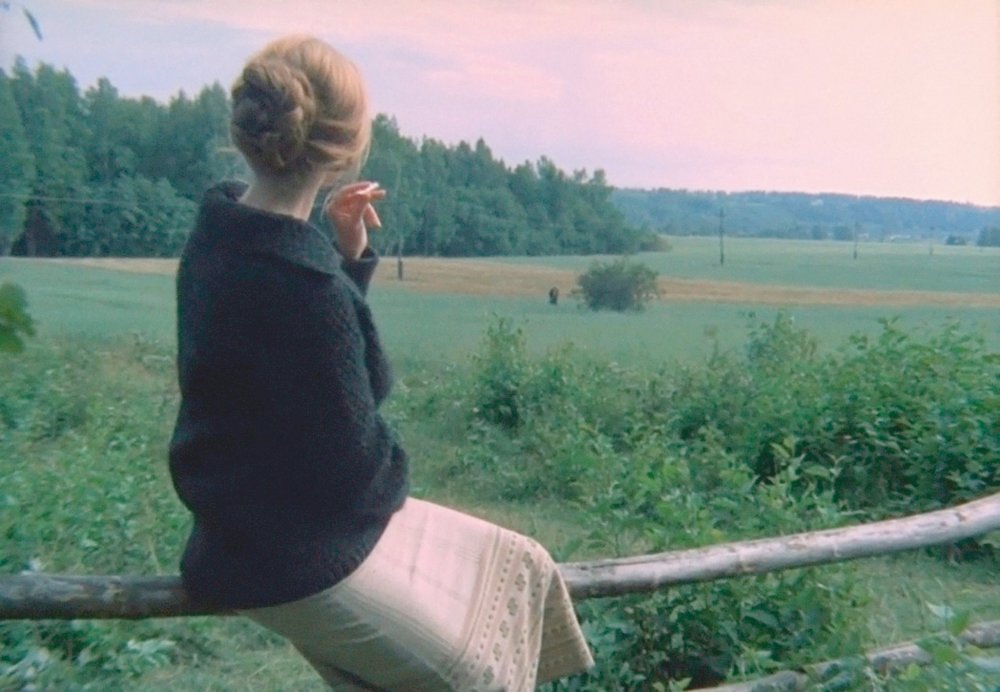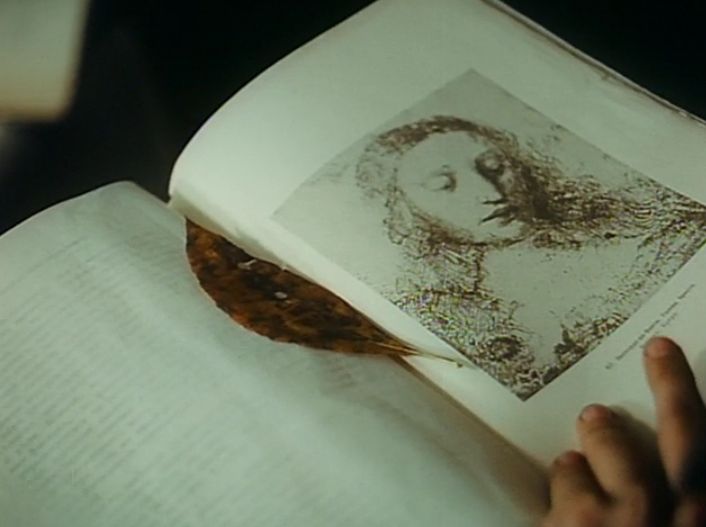 FILM
FILM In Which We Could Not Be This Married If We Tried
 Monday, February 12, 2018 at 12:54PM
Monday, February 12, 2018 at 12:54PM 
Our Home in Aspen
by ETHAN PETERSON
Fifty Shades Freed
dir. James Foley
105 minutes
 Sex during the honeymoon. At the beginning of Fifty Shades Freed, Christian (Jamie Dornan) and Ana (Dakota Johnson) are married in a lovely ceremony. The resulting honeymoon is incredibly tame. At one point, Christian chains Ana's arms to her legs, but he never really goes anywhere after he secures her. He just performs cunnilingus for a bit and I guess she can't move, but why would she have to or want to? Later, Ana is punished by her husband for disobeying her, and she is angry that he brought their dispute into the bedroom. She does not scream, "Never go to bed angry!" but it might as well be the subtitle of this inoffensive film.
Sex during the honeymoon. At the beginning of Fifty Shades Freed, Christian (Jamie Dornan) and Ana (Dakota Johnson) are married in a lovely ceremony. The resulting honeymoon is incredibly tame. At one point, Christian chains Ana's arms to her legs, but he never really goes anywhere after he secures her. He just performs cunnilingus for a bit and I guess she can't move, but why would she have to or want to? Later, Ana is punished by her husband for disobeying her, and she is angry that he brought their dispute into the bedroom. She does not scream, "Never go to bed angry!" but it might as well be the subtitle of this inoffensive film.
Previously, Christian Grey was something of a maniac who acted extremely rashly and would use the excuse of a troubled childhood to explain the various trials he put Ana and others such as his brother Eliot (Luke Grimes) through. As a married man, Christian has mellowed. He is very protective of his new wife, and she feels much the same. When a lively blonde architect (Arielle Kebbel) flirts with him, Ana attacks like a mealy-mouthed tiger. She is so brave we forgive the fact that her teeth look horrendous.
Methods of birth control. Although Ana tells Christian that she is taking the depo-provera shot to prevent his demon spawn from incubating within her, she actually "forgets" to take her shot. She never admits to this passive-aggressive dereliction of duty, but perhaps she can think of no other way to convince her husband to bear her the children she feels she deserves. The Depo shot is about 99 percent effective; that is, one out of every hundred times a baby will be born who is unexpected and possibly even unwanted.

Later - much later - we see Ana and Christian's daughter. Both parents are happy in the glow of their child. The implication is that even though the conception of the child was a mistake, the result is a happy one. I try to apply this basic philosophy to all the unintended consequences in my life, but it does not tell us what is probably more important - how to react to the things we chose for ourselves.
A marriage's rules. Ana's friend Kate (Eloise Mumford) is in an unhappy relationship with Christian's brother. When he proposes to her, she happily accepts, except it escapes no one's notice that he is doing such a thing in an Aspen nightclub. Onlookers don't know whether to applaud or cry. Christian's Aspen home is configured much like his other living spaces, featuring large open rooms complemented by small kitchens. He does not prize the excess of a large kitchen because in all his time spent learning how to control women, he never figured out how to manage a stove.
When Ana goes out to a bar and has a few drinks with Kate, Christian is incensed. "Keep the martinis coming," Kate tells their server, and Ana explains that "Christian will be so mad" and "I'm going to get in so much trouble." Kate never responds by saying, "Do you think this is maybe an unhealthy marriage if you can't go out for one night without having the fetish of the month (were those butt plugs?) foisted upon you?" Ana just sips her martini and returns home an hour later, where she is almost killed by one of Christian's disgruntled employees.

Cooking a marital stew. Christian senses that Ana is uncomfortable in this apartment where she was almost murdered. Fortunately, he has begun making plans for a home where they can both be completely comfortable. It looks something like a haunted house, so understandably Christian hires an architect to tear the entire thing down. Ana is grief-stricken at this thought - you see, she likes authentic things that retain their own charm as ages pass. In other words, she is attracted to someone who is not like her.
Instead of differentiating herself from her husband, the newly-named Ana Grey seeks to become more like him - mysterious, at times even beguilingly aggressive, but with a warm and chewy center. As the most phenomenal soundtrack plays, including an ironic song by Sia, the two fight over whether or not she should use his name in her professional life. Even though she works as a fiction editor at her husband's publishing company, Ana's friends and coworkers keep emphasizing that she has attained her position entirely through merit.
Like most caricatures, Christian and Ana Grey never do anything wrong, or contemplate something we would not do ourselves. In one scene, Ana finds a loaded gun her husband has left in a drawer. (The drawer was evidently not child-proofed.) She walks into the next room and asks him why he has it. I was stunned by this, since if I found a loaded gun in my husband's drawer I would never tell a soul. But he just calmly tells her to get rid of it.
Ethan Peterson is the reviews editor of This Recording.








































